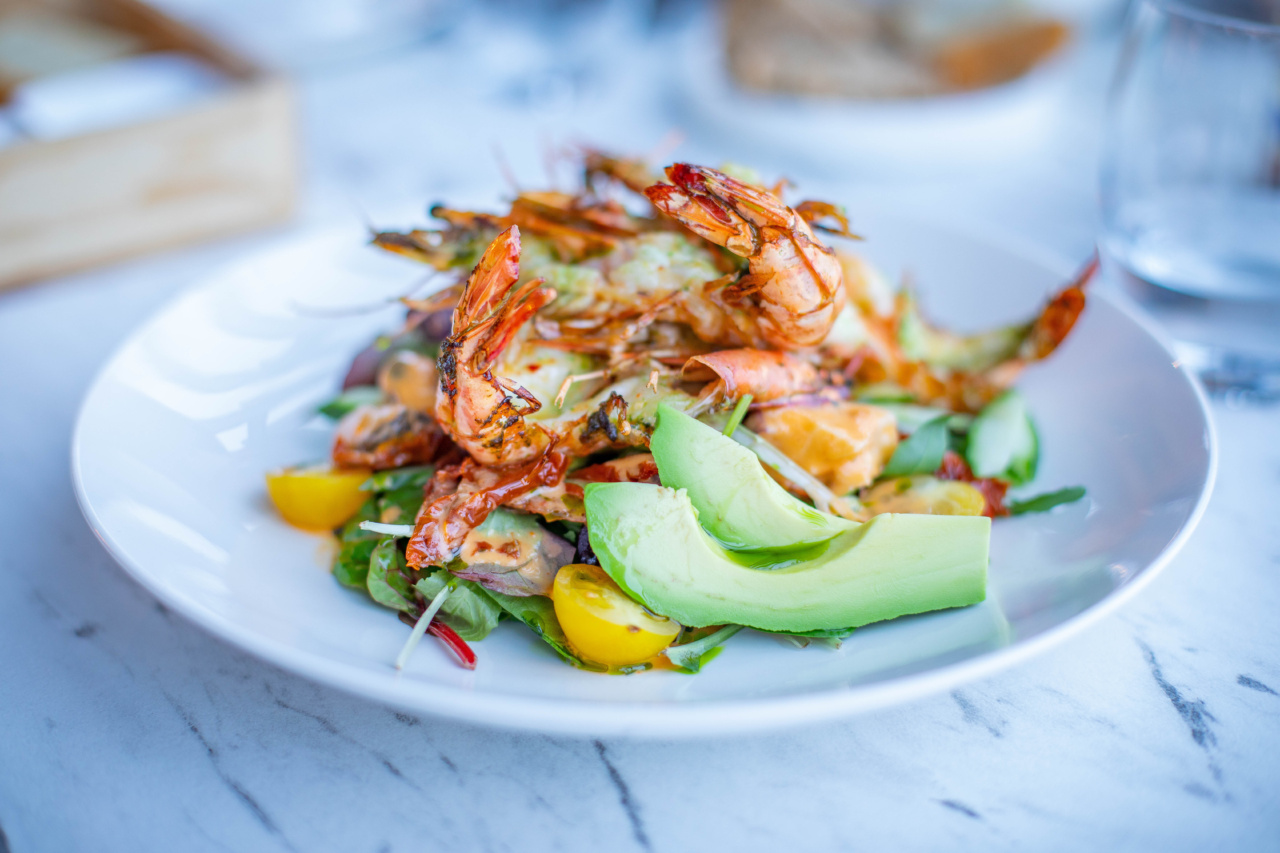Shrimp is a delicious and popular seafood option that is not only low in calories but also packed with essential nutrients. Whether you enjoy it grilled, sautéed, or in a savory shrimp cocktail, this versatile seafood offers numerous health benefits.
In this article, we will explore why shrimp is a great addition to a balanced diet and discover the various essential nutrients it provides.
Shrimp: A Low-calorie Delicacy
When it comes to a low-calorie diet, shrimp is a fantastic choice. With approximately 100 calories per 3-ounce serving, shrimp allows you to enjoy a satisfying meal without blowing your daily calorie intake.
If you are watching your weight or aiming to shed some pounds, incorporating shrimp into your diet can be an excellent strategy.
Protein-Packed Powerhouse
Shrimp is an exceptional source of lean protein. A 3-ounce serving of shrimp provides around 20 grams of protein, making it an ideal choice for individuals looking to meet their protein requirements.
Protein is essential for repairing and building tissues, supporting muscle growth, and maintaining overall body function. Including shrimp in your meals can help you achieve your daily protein goals without adding excess fat or calories to your diet.
Omega-3 Fatty Acids for Heart Health
Not only is shrimp a low-calorie protein option, but it also contains significant amounts of omega-3 fatty acids. Omega-3 fatty acids are essential fats that have been linked to various health benefits, especially for heart health.
These fatty acids can help reduce inflammation, lower blood pressure, and improve overall cardiovascular function. Including shrimp in your diet regularly can contribute to a healthier heart.
Rich in Antioxidants
Shrimp is a great source of several antioxidants, including astaxanthin. Antioxidants help protect your body against damage caused by harmful free radicals. Astaxanthin, in particular, is known for its potent antioxidant properties.
It not only supports overall health but also offers potential benefits for eye health and reducing the risk of certain chronic diseases.
Important Micronutrients
In addition to being low in calories and rich in protein, shrimp is packed with essential vitamins and minerals. Here are some key micronutrients found in shrimp:.
1. Vitamin B12
Shrimp is an excellent source of vitamin B12, which plays a crucial role in maintaining nerve function and producing DNA and red blood cells. Consuming adequate amounts of vitamin B12 is essential for overall health and preventing deficiencies.
2. Selenium
Selenium is a mineral that acts as an antioxidant, supporting the immune system and protecting against cell damage. Shrimp contains a significant amount of selenium, making it a valuable addition to your diet.
3. Iron
Iron is essential for producing red blood cells and carrying oxygen throughout your body. Incorporating foods rich in iron, such as shrimp, can help prevent iron deficiency anemia and support overall energy levels.
4. Zinc
Zinc is involved in numerous bodily functions, including supporting immune health, wound healing, and DNA synthesis. Shrimp is a good source of zinc, making it a valuable addition to a well-rounded diet.
5. Phosphorus
Shrimp is packed with phosphorus, an important mineral for bone health, DNA synthesis, and cellular function. Adequate phosphorus intake is vital for maintaining overall health and supporting various biological processes.
Choosing the Right Shrimp
When selecting shrimp, opt for fresher options whenever possible. Fresh shrimp should have a mild odor and a firm texture. Avoid shrimp that has a strong ammonia smell or feels mushy to the touch.
It’s also worth considering sustainable options to support responsible fishing practices and the long-term health of our oceans.
Delicious Ways to Enjoy Shrimp
There are countless ways to incorporate shrimp into your meals. Here are a few delicious ideas:.
1. Grilled Shrimp Skewers
Marinate shrimp with your favorite herbs and spices, then thread them onto skewers and grill until cooked through. Serve with a side of grilled vegetables for a flavorful and nutritious meal.
2. Shrimp Stir-Fry
Sauté shrimp with an array of colorful vegetables and your choice of sauce. Serve over brown rice or quinoa for a wholesome and satisfying stir-fry.
3. Shrimp Cocktail
Enjoy shrimp as a light and refreshing appetizer with a classic cocktail sauce or a tangy dip. This timeless dish is perfect for entertaining or as a flavorful snack.
4. Shrimp Tacos
Fill corn tortillas with sautéed shrimp, crunchy coleslaw, and a zesty dressing for a delightful and easy-to-make shrimp taco. Customize with your preferred toppings for a burst of flavor.
Incorporating Shrimp Into a Balanced Diet
While shrimp offers numerous health benefits, it’s essential to incorporate it into a balanced diet alongside other nutrient-dense foods. Pair shrimp with a variety of vegetables, whole grains, and healthy fats for a well-rounded meal plan.
As with any food, moderation is key, and portion control should be practiced to maintain a healthy calorie balance.




























